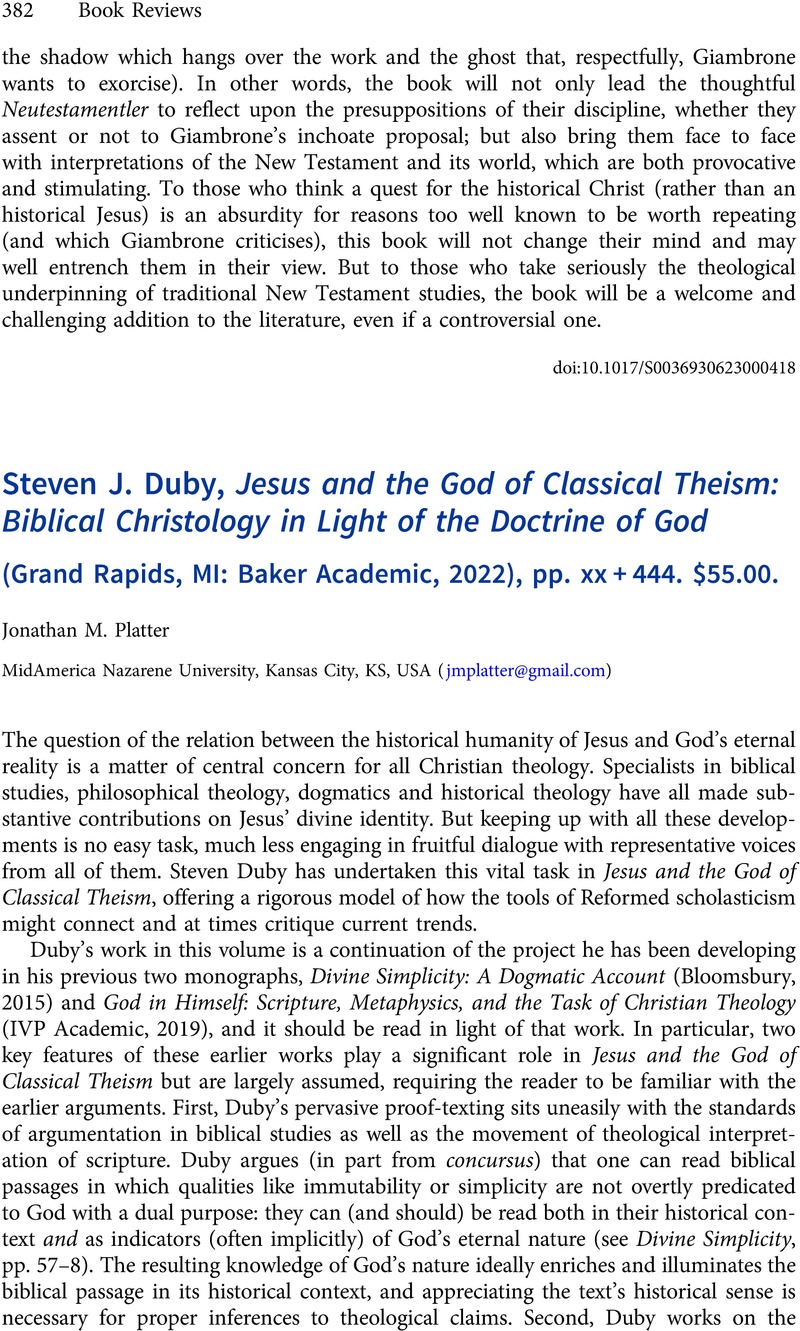No CrossRef data available.
Article contents
Steven J. Duby, Jesus and the God of Classical Theism: Biblical Christology in Light of the Doctrine of God (Grand Rapids, MI: Baker Academic, 2022), pp. xx + 444. $55.00.
Review products
Steven J. Duby, Jesus and the God of Classical Theism: Biblical Christology in Light of the Doctrine of God (Grand Rapids, MI: Baker Academic, 2022), pp. xx + 444. $55.00.
Published online by Cambridge University Press: 04 August 2023
Abstract
An abstract is not available for this content so a preview has been provided. Please use the Get access link above for information on how to access this content.

- Type
- Book Review
- Information
- Copyright
- Copyright © The Author(s), 2023. Published by Cambridge University Press



